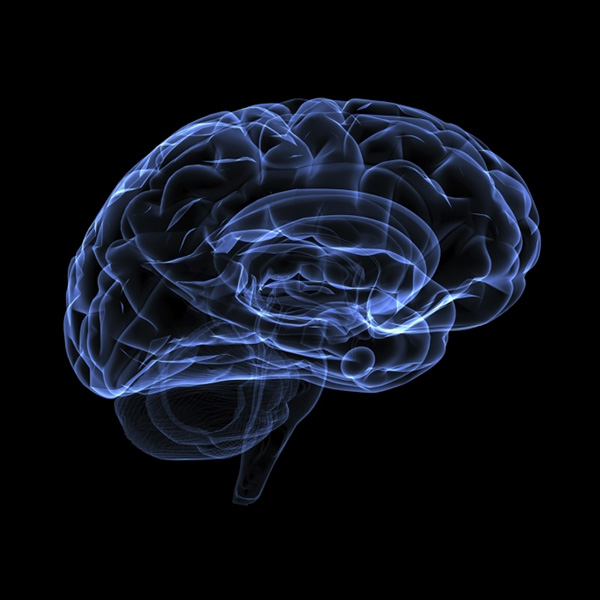
Valenta Held a Teleconference on Problems of Neuropsychology with International Participation
27.11.2014
On November 21, 2014, Valenta in partnership with leading Russian and international experts organized teleconference «The Problem of Patient: Secret Signs of Nervous System». The participants discussed the issues of differential diagnostics of the patient’s mental disorders in general practice, and opportunities of application of new diagnostic tools in practical medicine.
Clinical manifestations of such mental disorders as anxiety, depression, distress and somatization, often include signs of somatic (physical) and autonomic disorders; and on the contrary, somatic diseases often involve mental sphere. Such «vague» symptoms are frequently classified as autonomic dysfunction syndrome. According to different authors, about 30% of patients in Russia suffer from autonomic dysfunction syndrome. However, in more than 70% of cases, this syndrome is basically diagnosed and treated as a somatic disease. Thus, general practitioners need a tool enabling them to discern mental disorders quite quickly in order to choose an adequate treatment for such patients and to elaborate a therapeutic algorithm, either in place or with the help of a psychiatrist or psychotherapist.
V.A. Parfenov, D.M.Sci., Professor, Head of the Department of Nervous Diseases, Director of Clinic of Nervous Diseases at Sechenov MSMU: «A neurologist often faces problems when trying to specify causes of mental disorders in patients with autonomic dysfunction syndrome within the outpatient reception hours. An epidemiological survey aimed to evaluate the share of autonomic dysfunctions in the structure of prevalence, and to elaborate a systemic approach to primary diagnostics will promote modernization of the process of treatment and enable us to help as many patients as possible.»
The All-Russia not interventional observational program «Screening of Patients Suffering from Autonomic Dysfunction in Conditions of Routine Clinical Practice» (START) was initiated by Valenta aimed to study the structure of mental disorders in patients suffering from autonomic dysfunction and the existing practice of treating such patients. The following stage, START-2 program, was aimed to tackle the problem of autonomic imbalance in different categories of patients on the basis of Teraligen therapy; besides, the program included the assessment of sensitivity of «Four-dimensional diagnostic questionnaire on distress, depression, anxiety and somatization 4 DSQ» developed in Holland, and its linguistic validation in Russia. The procedure of linguistic validation is necessary for correct calibration of values of this tool of diagnostics for the Russian population of patients. A literal translation of foreign scales and questionnaires into Russian, without corresponding calibration of their sensitivity, causes mistakes in interpretation of the patient’s condition and provokes making incorrect decisions about the tactics of treatment. Care for the quality of treatment and interest in development of the appropriate and valid tool, prompt Valenta, in cooperation with the leading experts in neurology and psychiatry, to start this work — the first ever in Russia.
More than 10,000 patients and about 1,500 doctors participated in these two programs.
The questionnaire is a versatile tool for a multicomponent assessment of the patient’s mental state. It takes the patient not more than 10 minutes to fill in the questionnaire; its interpretation is quite easy and enables the doctor to reasonably inform the patient about the disease, its causes and forecasts, and to choose the optimal tactics of treatment.
According to the results, the active survey has revealed poly-systemic autonomic disorders in 86% of patients. In cases of «distress» diagnosis, somatization made 82.7%, anxiety — 60.5%, and depression — 53.0%; while 22.2% of patients needed a consultation at the psychiatrist. When somatization was revealed, distress was found in 87.6% of cases, anxiety — in 58.5%, and depression — in 50.6%, while 20.9% of patients needed to consult psychiatrist. Clinical and psychometric examination verified significant affective disorders of disturbing and depressive character in 100% of patients. In other words, different mental disorders often accompany each other. Besides, it was revealed that distress — a conventional pathology, marginal state of norm, a sort of pre-disease resulting from the increased stress, close to decompensation, — makes a significant share of complaints. If the patient does not receive a correct and timely help — he/she will «merge» into one of the first three unhealthy states.
«Valenta was the first in Russia to accomplish an initiative that helped it to achieve many goals at once: first of all, the company managed to draw the attention of medical community to the problems of so-called „difficult“ borderline cases and cases of autonomic imbalances, when patients often failed to receive adequate medical assistance; and second, within the general project, the leading schools of neurologists and psychiatrists united to develop a diagnostic tool enabling the doctor to qualify the patient’s state and to make timely decision on further tactics,» says Sergey Morozov, Head of the Directorate for Neuropsychological Portfolio Promotion, Member of the Board, OAO «Valenta Pharm». «Implementation of the tool in practice will help to improve diagnostics and therapy of patients with autonomic and mental disorders — that is to treat people quicker and better.»
